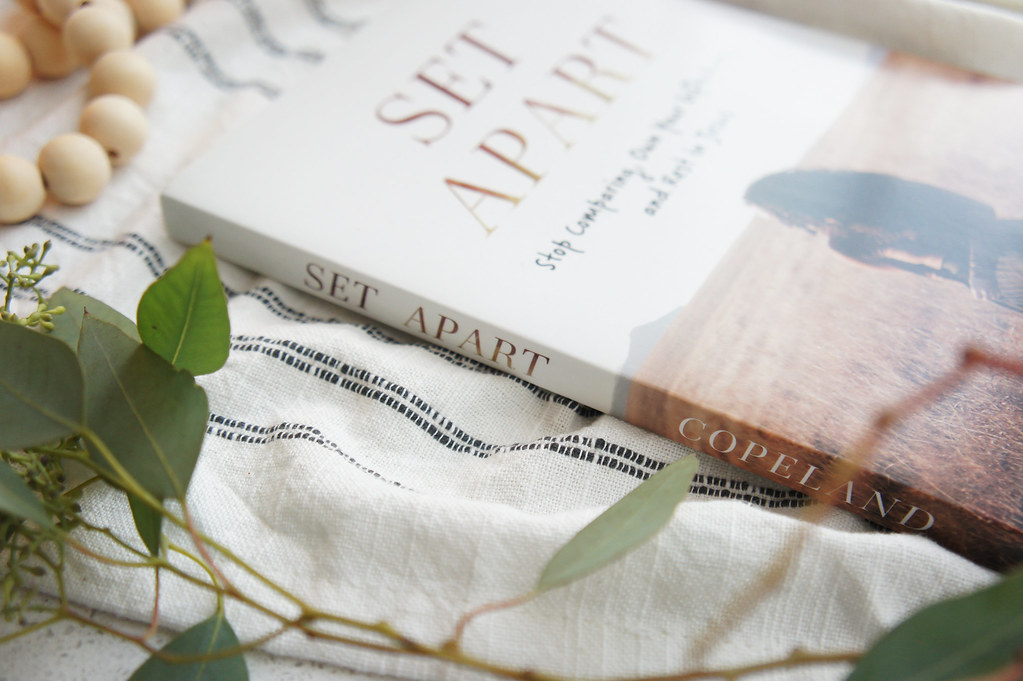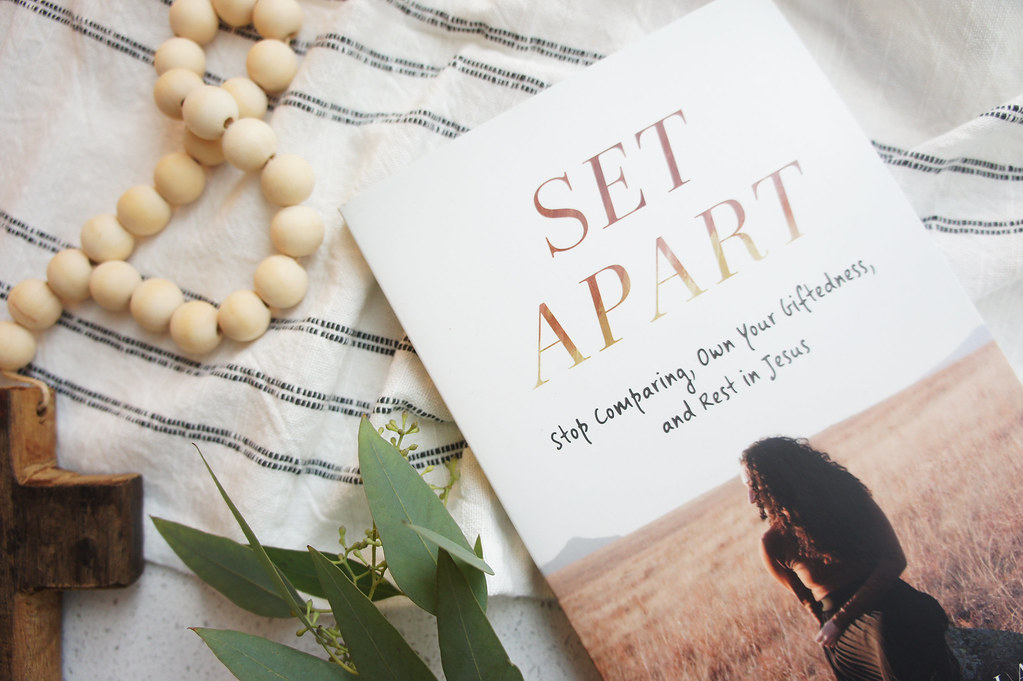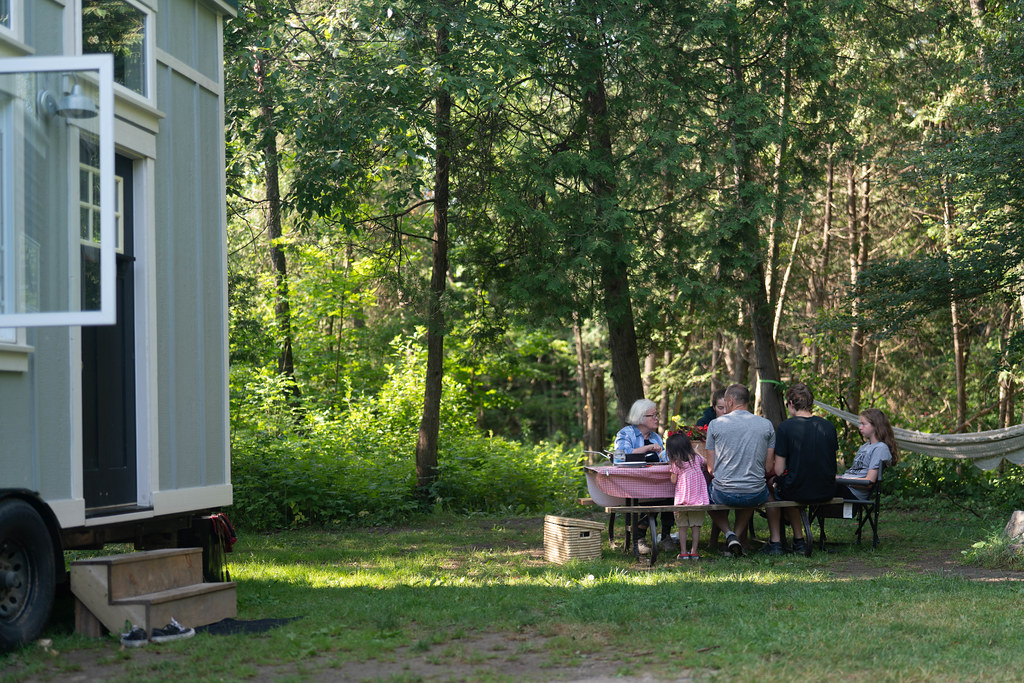Denisse Copeland wants women to know that, in Christ, you are enough. After a difficult childhood grappling with the divorce of her parents and often feeling unwanted, she came to Christ and began to discover the set-apart life God had for her. Now, Denisse and her husband Rashawn minister via their online and speaking platforms. Join me as we discover how difficult comparison makes our lives, and how God invites us to live from peace. It’s a grace to welcome Denisse to the farm’s front porch today…
guest post by Denisse Copeland
God gave me a gift that was difficult for me to accept as a child. In a sea of perfectly straight-haired Puerto Rican girls, my hair felt chaotically curly, not beautifully unique.
I used to tie my hair in a ponytail as slick as you can possibly imagine. I hated my curls, didn’t want anyone to see my “real” hair, and learned every style that would conceal what God had given me.
I wanted to be like everyone but myself.
“I wanted to be like everyone but myself.”
The other girls at my private Puerto Rican school seemed to have way more than I did. Some had beautiful makeup, and some dressed in super nice outfits. Seeing them—all day, every day—led me to believe I needed to look like them in order to be accepted. I started applying makeup, but my first attempts were complete fails. I showed up at school with makeup but still felt totally “other” and embarrassed because I just couldn’t get the look my group of school friends had. I never felt comfortable in my own skin.
Truthfully, growing up apart from Christ was uncomfortable in a lot of ways.
Every circle I joined, including friends and family, overflowed with criticism, gossip, and dirty joking. I so often felt afraid of being who I was, because I didn’t want to be made fun of or judged.
In order to fit in and be cool, I would often “put on” different personalities.
I became the Denisse who was down for anything and everything, the Denisse who knew what she wanted in life, or the Denisse who didn’t put up with people’s insults.








I never felt secure or safe, because I was always changing myself based on who I was with, how I felt around them, and what I thought they wanted from me. It was beyond uncomfortable; it was completely exhausting.
When Jesus rescued me, my relationships changed dramatically. It brought me such joy to be myself and feel accepted, to be loved no matter where I came from, what I had, or where I might be headed. I relished the freedom that gave me. Maybe that’s why it surprised me when I started to struggle with comparing myself to other Christian sisters.
“Anyone else ever felt like you’re drowning in a sea of comparison, even with Christian sisters you love?”
Over the years, I’ve been tempted to compare myself with the outgoing, perfectly put-together Christian woman everyone loves.
Or to the woman who’s so brilliant in the kitchen that every meal is Insta post-worthy. Or the woman who never seems to fight with or disrespect her husband.
And what about the mom who knows exactly how to parent toddlers? You know, the mama with neatly labeled sensory bins who understands things like developing gross motor skills. How do I compare myself with her and not feel like a total failure?
Anyone else ever felt like you’re drowning in a sea of comparison, even with Christian sisters you love? I don’t want that! I want to celebrate what God’s given others, not feel less-than because of it.
I’ve even battled the “not enough” lie in comparing myself to my husband. He does so many incredible things for God; I honestly don’t know how he keeps up with everything the Lord puts on his plate.
After we first got married, Rashawn often traveled to influencer events and conferences, on mission trips and evangelistic outreaches. From Oklahoma to Los Angeles, the Philippines to Israel, Rashawn always seemed on mission. Because I couldn’t travel with him on many of these trips, I’d stay home by myself, feeling totally unimportant.
“Thankfully, we can find hope and freedom in hearing what God has to say about comparison, understanding our unique giftedness, and owning it with peace and joy in Jesus.”
I’ve played the comparison game all too often in my life. I imagine a lot of us have.
Thankfully, we can find hope and freedom in hearing what God has to say about comparison, understanding our unique giftedness, and owning it with peace and joy in Jesus.
Lots of books, articles, and blogs have been written about the story of Mary and Martha in Luke 10. I’ve also heard plenty of sermons and podcasts about these sisters. Most come to one conclusion: We should all try to be like Mary. I can absolutely see why this point is emphasized again and again.
A curious thing happens to many women who hear this message, though. Those of us who are task-oriented, those of us who are business-minded, those of us who are creative, those of us who are warriors—we feel like there’s something irredeemably wrong with us. We compare ourselves with Mary and feel seriously not enough.
But this game of comparison is not what Jesus intended. One set of giftings isn’t more valuable or honoring to Him than another.
He was simply pointing out how in that moment Mary was operating from a position of peace—I am enough—while Martha, in all her exaggerated busyness, was operating from a position of striving—I am not enough.
“This game of comparison is not what Jesus intended. One set of giftings isn’t more valuable or honoring to Him than another.”
Instead of being drawn to sit at the feet of Jesus, many of us feel like we’re competing with Mary, our sister in Christ. We assume she must have always gotten things right, but Mary was only human. Comparing ourselves to any woman in one isolated moment of her life can make us feel less than and not enough.
Nineteenth-century author Josh Billings once wrote, “Love looks through a telescope; envy, through a microscope.” We often take a microscopic—and loveless—approach to the story of Mary and Martha. We envy Mary and condemn Martha. But that’s not the point of this story.
Jesus is the point.
I want us to turn a telescopic glance back at Luke 10:38–42 and see Jesus’s love for both of these sisters. Christ wasn’t exalting Mary above her sister (or any of us). Rather, He was inviting Martha to be at peace.
Mary had chosen peace in that moment, but Jesus wasn’t encouraging Martha to competitive comparison.
He was inviting her to observe an example and follow.
He’s inviting us to follow that example too.
Denisse Copeland was born and raised by a single mother in Bayamon, Puerto Rico. Her upbringing offered little stability, and Denisse soon found herself on a seemingly endless quest to find love and acceptance. It wasn’t until Jesus shook her world that she truly found what she was looking for. Now a mother of two living in Oklahoma City, Denisse works alongside her husband, Rashawn Copeland, as an online minister and evangelist. Their ministry reaches more than 6 million people every year.
What do you do when that voice in your head tells you you’re not enough? Not smart enough, not pretty enough, not capable enough, not present enough. Where do you turn when the world’s promise that you can have it all becomes a crushing expectation that you must do it all, at all times, and keep a smile fixed on your face while you wither inside?
By unpacking the biblical story of Mary and Martha, as well as her own story of recognizing her unique giftedness, in Set Apart: Stop Comparing, Own Your Giftedness, and Rest in Jesus, Denisse Copeland shows you how to embrace your identity as a woman set apart to be exactly who God created you to be, whether that is a C-suite executive or a stay-at-home mom.
No apologies. No guilt. No compromise. If you’re tired of comparing your life to others as you strive to be all things to all people, Set Apart is your invitation to lay your burdens down and abide in Jesus–faithful, free, and fulfilled.
[ Our humble thanks to Baker for their partnership in today’s devotion ]








